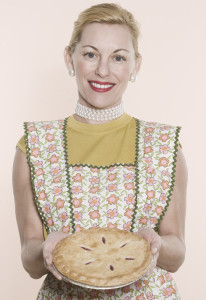 Part of the reason why people are fat today is because of certain family “food rules.” We all know the parent whose child comes home after school and tells her she is hungry – and Mom says, “You can’t eat now. Wait until dinner or you’ll spoil your appetite!” Or the mother who has told us to clean our plate because of starving children in China.
Part of the reason why people are fat today is because of certain family “food rules.” We all know the parent whose child comes home after school and tells her she is hungry – and Mom says, “You can’t eat now. Wait until dinner or you’ll spoil your appetite!” Or the mother who has told us to clean our plate because of starving children in China.
In working with compulsive eaters, one of Virginia Porcello’s approaches is to help clients go back in time and explore the following kinds of recollections relating to food:
1. How much was served?
2. How much was eaten?
3. Did certain foods have to be eaten first?
4. Was there a reward given if you cleaned your plate?
5. Was dinner always served at the same time?
The problem is that, as we get older, the eating behavior becomes more and more ingrained, so that it is hard to change. Virginia Porcello has found that when she works with children at an early age, along with their parents, they can grow up free from compulsion and obsession with food.
But many times feeding patterns mean more than just eating. For parents it is a means to an end. A mother will shout “good” if her child eats. Food can be used to punish and reward and it can become a power struggle between parent and child. The child can become defiant and create a feeling of “false power” over the parent, thereby getting her way.
The only reason we should eat is to satisfy physical hunger. That is the key to living your life as a thin person. Unfortunately, most people eat for many reasons that have nothing to do with physical hunger. They eat for emotional comfort, when they are anxious or feel stressed, angry, lonely and bored. They eat because it’s noon, and noon time is when you are supposed to eat lunch. They eat because it tastes good. And these are the messages that are passed on to our children, who grow up with the same guilts, obsessions and compulsions as their mothers have.
While parents have a responsibility in raising their children to be healthy, upstanding individuals who can become independent and happy, the issues around food and weight can keep the child from feeling good and living a productive life with a high sense of self esteem.
Parents who put their children on diets at an early age are setting them up for a life of “yo-yo dieting”, guilt and self-hatred. There are other avenues to help children grow up free and live with a good body image, and not feel ashamed of themselves.
In her “parents” workshops, Virginia Porcello teaches mothers and fathers how to bring up children without such eating problems as anorexia nervosa, bulimia, and compulsive overeating. Parents learn to break those old family “food rules” and acquire healthier, more constructive tools to help their children grow up with a good body image, high self-esteem and free from an obsession with food and the compulsion to overeat.
